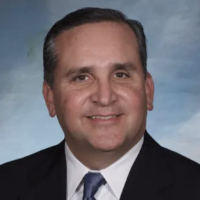Bushland Bankruptcy Lawyer, Texas
Includes: Bankruptcy Litigation, Commercial Bankruptcy, Consumer Bankruptcy, Dissolution
Patrick A. Swindell
✓ VERIFIEDConsumer Bankruptcy, Bankruptcy, Bankruptcy & Debt
An AV® Preeminent™ Peer Review Rated℠ attorney by Martindale-Hubbell®, Patrick Swindell focuses on bankruptcy law and civil litigation. He is a ... (more)
John Edward Attebury
Bankruptcy, Dispute Resolution, Criminal, Commercial Real Estate, Business
Status: In Good Standing Licensed: 10 Years
Van W. Northern
Bankruptcy, Business & Trade, Wills, Litigation
Status: In Good Standing Licensed: 40 Years
Dennis Ray Boren
Criminal, Business & Trade, Business, Bankruptcy
Status: In Good Standing Licensed: 38 Years
Richard Dabney Ladd
Commercial Real Estate, Litigation, Oil & Gas, Bankruptcy
Status: In Good Standing Licensed: 42 Years
Burke Austin Moore
Employee Rights, Family Law, Criminal, Consumer Bankruptcy
Status: In Good Standing Licensed: 13 Years
Jeff Blackburn
International Other, Criminal, Bankruptcy, Wrongful Death
Status: In Good Standing Licensed: 41 Years


